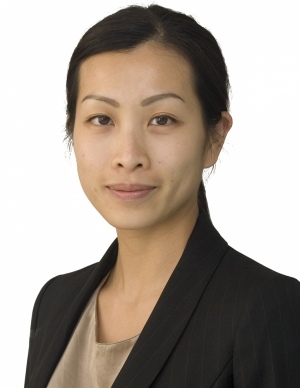From physics to law: a career in patent

Alumnus Olivia Tsang (Physics, 2003) shares her experiences pursuing a career outside the lab - at the interface between law, business and invention.
“It’s a feeling that many final year undergraduates will no doubt be familiar with: that sense of imminent panic about what to do with the rest of your life. Certainly that’s something I experienced towards the end of my physics degree at Imperial.
Of course there were plenty of possibilities available to me and the lure of the financial sector was strong for many fellow physics graduates – but I had little interest in that world.

Dr Olivia Tsang (Physics, 2003)
So in the end I decided to remain in science and academia for the time being and began my doctoral studies at the Max Planck Institute for Nuclear Physics in Heidelberg, Germany.
However, I realised that, while many different areas of science and technology interest me, none held my attention to quite the degree required for a career in full time research. Nevertheless, I was still determined to work with science in some capacity and that’s when I learned about the relatively unknown career of a patent attorney.
When I looked into the profession it became clear that it was exactly what I had been looking for all along. In essence, a patent attorney’s job is to communicate with inventors, understand their inventions and the technology that underpins them, and provide the best protection for their intellectual property (IP).
A patent attorney’s job is to communicate with inventors, understand their inventions and the technology that underpins them, and provide the best protection
– Dr Olivia Tsang
Patent firms in London generally advertise for trainee vacancies in around the first quarter of the year, but by the time I eventually completed my thesis most firms had already finished their trainee recruitment for the year.
So instead, I speculatively approached firms in the Leeds area, in the North of England, where my husband had been offered a job.
Fortuitously I found a firm with a special interest in the Chinese IP market, and with knowledge of both Mandarin and Cantonese, I hoped that this might give me a slight edge. I wrote to one of the partners and was offered an interview. The second interview came shortly after, and I was ultimately offered a trainee position at Haseltine Lake – where I still work in the electronics and telecommunications team.
In at the deep end
The first day of the job was quite a baptism of fire. I was shown to my office after a brief introduction to my colleagues and there on my desk was a stack of files. I was told to study the patent cases and decide what needed to be done. After frantically looking through legal texts and other sources of reference, I found that the best way to make headway turned out to be simply chatting with the administrators and other trainees, and asking them to give me an overview of the patent system.
What I didn’t quite appreciate was how different these exams were; there is no absolute right or wrong answer
– Dr Olivia Tsang
From my prior research, I already knew about the qualifying exams. It was therefore not a surprise when the topic came up soon after I started. There are three sets of exams that all training patent attorneys in the UK are required to pass before they can be considered qualified: foundation level, UK qualifying and European qualifying exams. Some universities in the UK run intellectual property courses lasting between four and eight months, which exempt you from the foundation level exams. What I didn’t quite appreciate was how different these exams were from the type of exams I was accustomed to. Generally speaking, your answers are argument-based; there is no absolute right or wrong answer, with a greater emphasis on how you make your point.
The training period takes at least three years, with most trainees taking five on average. Once qualified, you can expect your salary to increase by around a factor of three, although you are expected to turn around cases much more quickly.
Unique challenge
What you will do on a daily basis differs depending on your area of expertise and where you work. In a private practice, such as Haseltine Lake, my day may involve corresponding with an inventor to clarify certain details of an invention; drafting a specification of the invention; and writing to the UK or European Patent Office in response to objections raised on a patent application. When dealing with larger corporations as clients, I may find myself dealing with an in-house attorney from the company’s IP department instead of the inventor directly. Thanks to my background, I’ve also had the chance to travel to China and speak at IP conferences and seminars there and visit our Chinese clients.
You will encounter significant technological, legal and commercial challenges
– Dr Olivia Tsang
So in summary one route to enter the patent profession is to train in a private practice (much the same as with a law firm), another is through the in-house IP department of a technology-based company or research institute. A somewhat alternative route is as a patent examiner at the UK Intellectual Property Office or European Patent Office. Whichever route you take, there will obviously be relative advantages and disadvantages. I can only speak for the private practice route, where one slight drawback is the frustration you feel when you are excluded from the decision-making process of a client company, but on the other and the variety in dealing with clients from different technology backgrounds, each with different needs and advice requirements is very rewarding.
Ultimately you will encounter significant technological, legal and commercial challenges. And few professions can claim that!
Article text (excluding photos or graphics) © Imperial College London.
Photos and graphics subject to third party copyright used with permission or © Imperial College London.
Reporter
Andrew Czyzewski
Communications Division